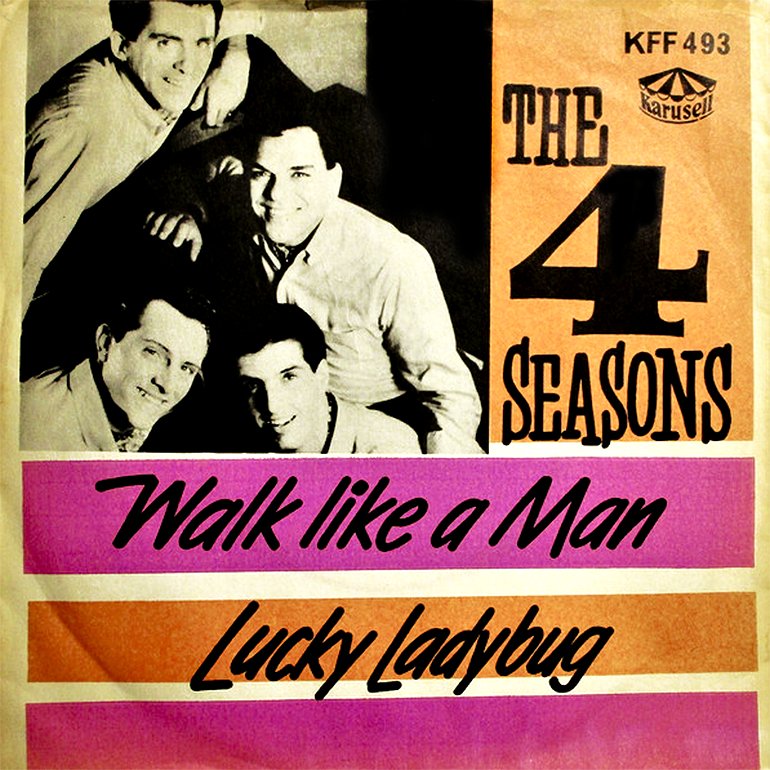Introduction

Walk Like a Man: A Doo-Wop Anthem of Empowerment
Frankie Valli and The Four Seasons “Walk Like a Man” isn’t just a catchy tune; it’s a cultural touchstone. Released in 1963, the song became a number-one hit, solidifying the group’s place as pop music royalty and capturing the youthful energy of a generation.
But “Walk Like a Man” has more depth than its danceable rhythm suggests. Written by Bob Crewe and Bob Gaudio, the song explores themes of masculinity and self-assuredness. The lyrics paint a picture of a young man, unsure and shy around a girl, yearning to project confidence and win her affection.
The song’s iconic call-and-response between Frankie Valli’s soaring falsetto and Nick Massi’s deep bass vocals adds a unique layer to the narrative. Valli’s pleading vocals deliver the verses, conveying the young man’s nervousness, while Massi’s powerful bass provides a sense of determination in the chorus – “Walk like a man, talk like a man.”
“Walk Like a Man” wasn’t without its controversy. Some interpreted the lyrics as promoting a rigid definition of masculinity. However, others saw it as an anthem of empowerment, a call for young men to find their confidence and express their feelings.
The song’s legacy extends far beyond the charts. It’s been featured in countless movies and television shows, and its infectious energy is a perfect fit for scenes of youthful rebellion and coming-of-age experiences.
“Walk Like a Man” remains a timeless classic. It’s a reminder that finding your voice and taking charge, regardless of gender, is a universal human experience. So, put on your dancing shoes and get ready to be transported back to a simpler time, when the melody was infectious and the message resonated with young hearts everywhere.
Video
Views: 18